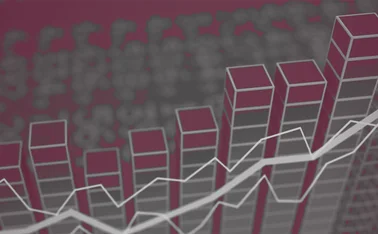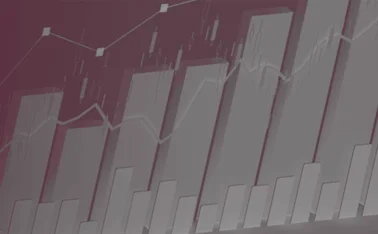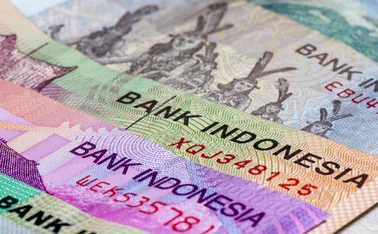
Silver linings


Governments and enterprises are both attempting to cope with huge uncertainty during the Covid-19 pandemic. Simultaneously, they are looking for new ways to prevent the collapse of capital markets and promote an orderly recovery. Despite their efforts, in the coming years the global economy is likely to suffer low growth, low interest rates and high debt levels. Pandemic prevention and control measures mean countries are obliged to maintain their social and economic operations through large fiscal deficits. The decline in economic activity leads to less fiscal revenue, while spending and deficits increase rapidly to sustain employment and social stability.
The International Monetary Fund (IMF) forecast that global public debt would hit a record high in 2020, accounting for almost 100% of global GDP. Multilateral institutions – the IMF in particular – suggest major economies should not immediately adopt restrictive policies to prevent rising debt levels, contrary to their actions during the global financial crisis that began in 2007–08. In many developed countries, zero – or even negative – interest rates have significantly lowered government costs of financing, and the rebound of economic growth will further help to squeeze the debt ratio. The IMF expects the debt ratio to decrease continuously after 2025.

In an environment of rising debt and relatively accommodative monetary policy, major economies have signalled they will maintain low interest rates for their survival. Most treasury bonds are also currently transacted in the global market with zero or negative interest rates. Low rates help decrease the interest rate of public debts, reducing spending. They also lower the cost of servicing the deficits.
Shock tactics
Uncertainties and risks continue to hover around the recovery of the global economy. For major economies, accommodative monetary policies are likely to remain for a long time. The same applies to the low interest rate environment, largely as a result of long-term structural factors such as a widening income gap, ageing populations and industrial structure.
For enterprises, a drop in profits and steep increases in urgent needs push them to seek large amounts of funding to sustain their business. Accommodative monetary policies implemented by central banks, such as the US Federal Reserve Board, have, to some extent, also been fuelling the rising leverage rate of enterprises in the non-financial sector. This is reflected in the
following areas:
1. Enterprises are being encouraged to prioritise liquidity issues over mergers and acquisitions, repurchases and other payments.
2. The issuance of investment-grade and non-investment-grade bonds is growing.
3. Industries significantly affected by the pandemic – including energy, durable consumer goods, accommodation, and food and beverages – have received substantial financing.
4. Small and medium-sized enterprises (SMEs) received financial support as well. Monetary and fiscal policies were aimed at countering the shocks to the global economy caused by the pandemic, but access to funding has varied, as larger businesses find it easier to find financing in the open market than SMEs.
In Chinese, the word ‘crisis’ combines two characters meaning danger and opportunity – the same as the current situation. The capital markets will definitely spring to life once the pandemic is under control
Yet there are opportunities. The economic recovery will present new opportunities for emerging economies and developing countries to transform to more green and sustainable development. The process of dealing with the pandemic itself has laid a sound foundation for the transition. Low interest rates have, to some extent, relieved the pressure on governments and enterprises to pay the interest.
As shown at the Group of 20 finance ministers and central bank governors meeting, the international community – including major lenders – are actively exploring the debt relief plans of low-income developing countries. With careful planning, governments can achieve success in fighting the pandemic and securing people’s livelihoods, at the same time investing in sustainable development projects. In this way, the current crisis can be considered an opportunity for a green and sustainable recovery.
Mankind has entered a new era of interconnectivity where global interests and welfare are intertwined. Transportation, telecommunications and new infrastructure have attracted increasing investments. During local lockdowns, remote online working and learning have enhanced and secured people’s daily lives, and public sectors are able to provide critical services via digital measures, creating the precedent for a new normal after the pandemic.
Green development is another area of global consensus, as more attention is focused on climate change. The green economy, growing from related new investments, bonds and equities, will contribute to the improvement of the environment, economic growth and employment in the coming years.
In conclusion, what we are facing now is unprecedented. In Chinese, the word ‘crisis’ combines two characters meaning danger and opportunity – the same as the current situation. The capital markets will definitely spring to life once the pandemic is under control.
Only users who have a paid subscription or are part of a corporate subscription are able to print or copy content.
To access these options, along with all other subscription benefits, please contact info@centralbanking.com or view our subscription options here: http://subscriptions.centralbanking.com/subscribe
You are currently unable to print this content. Please contact info@centralbanking.com to find out more.
You are currently unable to copy this content. Please contact info@centralbanking.com to find out more.
Copyright Infopro Digital Limited. All rights reserved.
As outlined in our terms and conditions, https://www.infopro-digital.com/terms-and-conditions/subscriptions/ (point 2.4), printing is limited to a single copy.
If you would like to purchase additional rights please email info@centralbanking.com
Copyright Infopro Digital Limited. All rights reserved.
You may share this content using our article tools. As outlined in our terms and conditions, https://www.infopro-digital.com/terms-and-conditions/subscriptions/ (clause 2.4), an Authorised User may only make one copy of the materials for their own personal use. You must also comply with the restrictions in clause 2.5.
If you would like to purchase additional rights please email info@centralbanking.com







